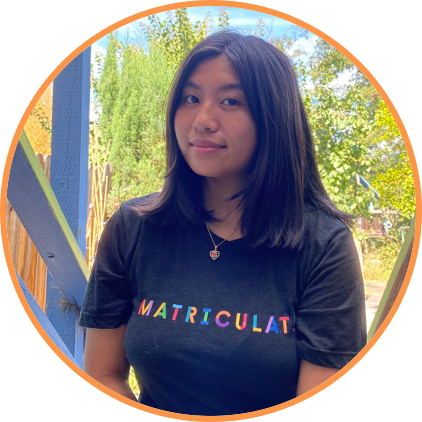Techbridge Girls alumna Veronica L. is a 16-year-old high school senior from Oakland, CA, who plans to major in Computer Science in college. Veronica participated in our Inspire elementary school program when she was in 5th grade, and she recently shared a few reflections on her STEM journey with us, along with key insights into how to support other girls in persisting through to STEM careers.
As a Techbridge Girls alumna, how has Techbridge Girls helped you along your journey? Is there a specific lesson or skill you gained?
Techbridge Girls exposed me to spaces that were gender-exclusive and empowered women, both led and pioneered by women, and focused on community building and learning. As girls navigate this world and the challenges that come with being underrepresented minorities, we learn to appreciate and utilize these opportunities that Techbridge offers. Girls could fearlessly contribute in these spaces without the fear of judgment and stigma of speaking out in male-dominated fields. I’ve learned that community building is key when it comes to uplifting affected communities – nothing is more liberating than being able to talk about your shared experience with someone who understands.
From your experience, what do you think are the greatest challenges facing girls, especially those from low-income communities, looking to pursue an education or career in STEM?
As a woman in the Computer Science Academy at my high school, I have noticed that the graduating class of 2021 is nearly 30% female, a disparity from what should be ~50%. Every year, my computer class would have less and less female students – leading me to wonder what were the challenges women faced in STEM. I think girls pursuing STEM especially from school districts like mine, where a little over 70% of students qualify for free/reduced lunch, are faced with socio-economic barriers that disadvantage them as opposed to other, better-funded school districts. Gender, race, and class are the main factors that hinder underrepresented minorities from pursuing STEM in higher education and in their later careers. Girls, who are already underrepresented in STEM, lack the proper exposure to STEM programs and mentors at an early age – which enforces this notion that STEM is better suited for men. My district does not allocate its funds to best support its students, important academic programs such as Techbridge are not given the recognition nor significant financial contribution, which prevents more underrepresented students from accessing these programs.
How do you define “leading fearlessly”? What does this mean to you?
Leading fearlessly is the courage to step into the unknown with the belief that whatever happens, you will be successful. I define my success as a measurement of how meaningful my work and effort will be in the grand scheme of things we know as life – applicable to my academics, career, relationships, etc. My path is not a fixed event – it is subject to change at any time and it is my responsibility to make sure that no matter who it is headed, that I can lead fearlessly and adapt to my conditions.
What are you doing now to lead fearlessly?
I am currently juggling college admissions, academics, a job, clubs, side projects, and life during the COVID-19 pandemic. I spend hours in the double digits a day behind my computer screen typing away at whatever task is due then. Leading fearlessly means not only setting an example for the underclassmen that I lead in my club practices; it also means having trust in myself that the work that I’m doing at the moment will come together and help me in the long term. I am caught up in the middle of a pandemic and a national election; yet I am expected to act like normal and to adapt. I am scared. I think we all are. But that doesn’t mean I stop doing what I need to do, it means I need to work even harder to ensure that those I lead can find inspiration within me and continue to lead fearlessly on their own as well.
When the going gets hard, what or who motivates you or inspires you to keep going?
My parents. It’s a common American story – Immigrants from another country starting a new life in America for their children, but there’s still that element of perseverance that I don’t think I will ever be able to attain unless I was directly in their shoes. My success is their comfort, a comfort that they deserve for giving me a good upbringing.
Techbridge Girls has been advocating for girls for the past 20 years. We’ve made big progress, but still have a ways to go. If you could accomplish one thing for girls in the next 20 years, what would it be? What is your vision for the future?
More representation and fair pay. The same goal that women have been advocating for hundreds of years – may be possible in 20 years, but it is clear that this goal is one that requires some structural change in every level of society. My vision for the future is one that involves me in my career, advocating for minority rights no matter what field I decide to jump in. The same way Techbridge Girls has fought for student and women’s rights, I will continue on that legacy and become a voice for the unheard.

